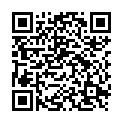|
|
|
| Module code: E410 |
|
3V+1U (4 hours per week) |
|
5 |
| Semester: 4 |
| Mandatory course: yes |
Language of instruction:
German |
Assessment:
Written examination
[updated 11.03.2010]
|
E410 Electrical Engineering, Bachelor, ASPO 01.10.2005
, semester 4, mandatory course
|
60 class hours (= 45 clock hours) over a 15-week period.
The total student study time is 150 hours (equivalent to 5 ECTS credits).
There are therefore 105 hours available for class preparation and follow-up work and exam preparation.
|
Recommended prerequisites (modules):
E101 Mathematics I
E201 Mathematics II
E301 Mathematics III
[updated 11.03.2010]
|
Recommended as prerequisite for:
E514 Digital Signal Processing
[updated 12.03.2010]
|
Module coordinator:
Prof. Dr. Martin Buchholz |
Lecturer:
Prof. Dr. Martin Buchholz
[updated 11.03.2010]
|
Learning outcomes:
Systems theory is an interdisciplinary subject that focuses on algorithms and that is fundamental to the fields of communications, control and automation engineering. After successfully completing this module, students will have acquired the theoretical relationships necessary for understanding signal transmission in communications systems. These are the essential fundamental principles of analogue and digital signal processing. Having learned how to apply the mathematical techniques of Laplace and Fourier transforms to signals and communications systems, students will be in a position to perform time- and frequency-domain analyses.
[updated 11.03.2010]
|
Module content:
Teaching those ideas in systems theory that are of particular relevance in communications engineering and microelectronics.
1.Introduction, signals and systems, terminology
2.Classification of signals
3.Descriptions of LTI systems in the time domain
4.Descriptions of LTI systems in the frequency domain
Description of LTI systems using the Laplace transform
Discrete signals and systems
Complex signal representation
Appendix: Correspondence tables
[updated 11.03.2010]
|
Teaching methods/Media:
Lecture notes, video projector, Matlab exercises
[updated 11.03.2010]
|
Recommended or required reading:
Lüke, H.D.; Ohm, J.-R.: Signalübertragung – Grundlagen der digitalen und analogen Nachrichtenübertragungssysteme, Springer, 2004
Scheithauer, R.: Signale und Systeme, Teubner Verlag, 2005
Oppenheim, A.V.; Wilsky, A.S.: Signale und Systeme - Lehrbuch, Wiley, 1992
Brigham, E.O.: FFT Anwendungen, Oldenbourg, 1997
Werner, M.: Signale und Systeme, Lehr- und Arbeitsbuch mit Matlab Übungen, Vieweg Verlag, 2005
Frey, T.; Bossert, M.: Signal- und Systemtheorie, Teubner Verlag, 2004
Girod, B.; Rabenstein, R.; Stenger, A.: Einführung in die Systemtheorie, Teubner Verlag, 2005
Föllinger, O.: Laplace- Fourier- und z-Transformation, Teubner, 2003
[updated 11.03.2010]
|


